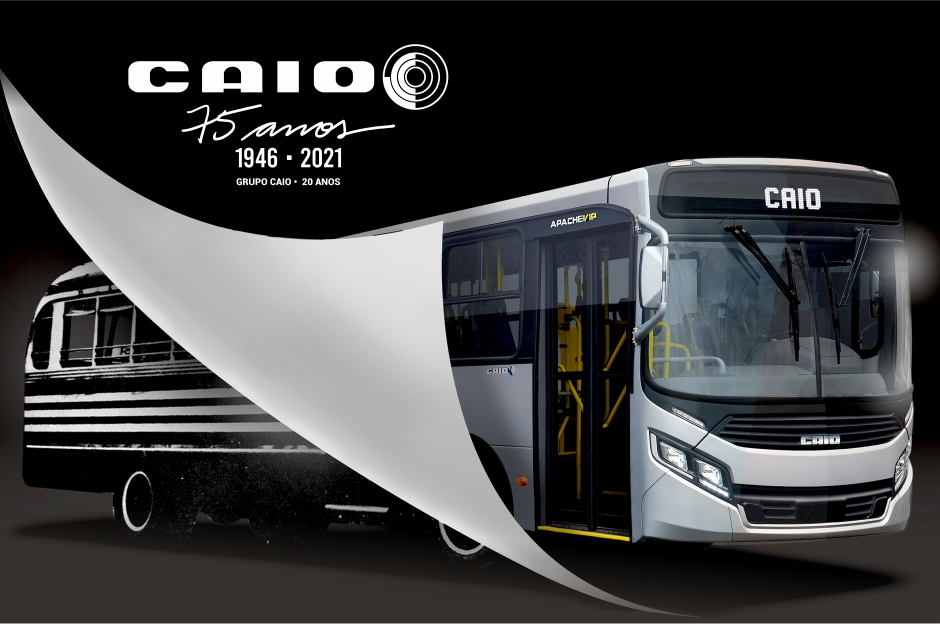
- INSTITUTIONAL
- PRODUCTS
- CAIO PROTECT
- SALES AND SERVICES
- PROVIDERS
- GALLERY
- PEOPLE & MANAGEMENT
- CONTACT
 The history of Caio brand merges with the evolution of collective passenger transportation. It has been 75 years establishing trends in the segment, making the difference with cutting-edge products and establishing itself as one of the largest urban bus manufacturers in the market, on a global level. Based on solid values, the brand is internationally recognized for its excellence in quality, structural robustness, design and differentiated solutions.
The history of Caio brand merges with the evolution of collective passenger transportation. It has been 75 years establishing trends in the segment, making the difference with cutting-edge products and establishing itself as one of the largest urban bus manufacturers in the market, on a global level. Based on solid values, the brand is internationally recognized for its excellence in quality, structural robustness, design and differentiated solutions.